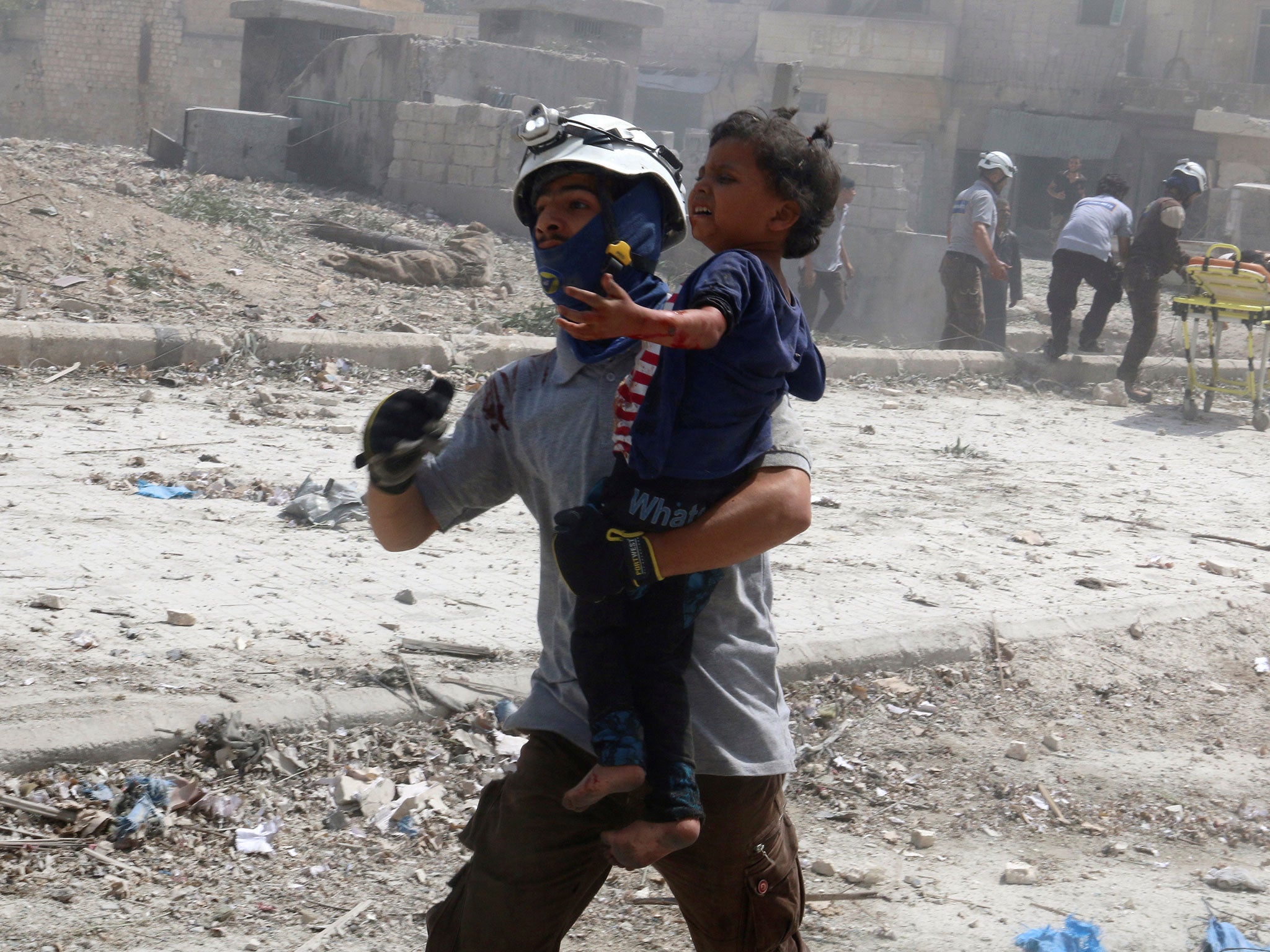Intensive diplomacy finally offers the hope of de-escalating violence in Syria
What is most important about the ceasefire that is supposed to come into force on Monday night is that the former cold-war superpowers have agreed it

The Syrian civil war has now lasted almost as long as the Second World War. It has seemed so hopeless for so long that scepticism about the agreement reached between the US and Russia in Geneva in the early hours of Saturday would seem justified. However, as Patrick Cockburn, our award-winning foreign correspondent, writes, it offers at last a real chance of the de-escalation of violence.
What is most important about the ceasefire that is supposed to come into force on Monday night is that the former cold-war superpowers have agreed it. The US and Russia both have a strong interest in making the agreement work. Barack Obama wants to expunge the idea that his weakness and passivity contributed to the Syrian bloodbath. Vladimir Putin wants to restore Russia’s prestige as America’s equal. Their plenipotentiaries, John Kerry and Sergei Lavrov, have invested 10 months in negotiating this deal: they need it to work. The US and Russia will, therefore, put pressure on their clients in and around Syria to deliver.
All those hopes that the end of the cold war would mean the “end of history”, the triumph of liberal democracy and the end of proxy wars, seem a long time ago now. Not that the Syrian civil war is like the proxy wars of the cold-war era. It is a more complicated impasse than that. Five years ago, the Assad regime, which looked as if it might be toppled by an “Arab spring” uprising, was sustained by Russian support – support which finally became explicit by the Russian intervention a year ago. Meanwhile, the forces arrayed against Assad quickly became dominated by the most ruthless Islamist fighters, including Isis and the local al-Qaeda franchise. Recently, Isis has been pushed back by an assortment of forces, many of whom are hostile to each other.
Then there were the complications of regional players with interests in the civil war. Turkey has borne a burden of refugees, while also wanting to constrain the power of the Iraqi Kurds, who are the most effective anti-Isis force on the ground. Assad has also been supported by Iran and its allies in Lebanon, Hezbollah, while Saudi Arabia and Qatar have an interest in supporting the so-called moderate opposition.
No wonder, as Cockburn says, the ceasefire agreement “looks complicated and is even more complex than it looks”. It may be some time, therefore, before we know whether or not the situation is stabilising. But at last the greater forces exerted on the conflict are aligned and offer the prospect of progress in the right direction.
After so long when western military intervention and non-intervention have seemed equally disastrous, it is to be hoped that the intensive diplomacy of the past 10 months is finally paying dividends.

Join our commenting forum
Join thought-provoking conversations, follow other Independent readers and see their replies